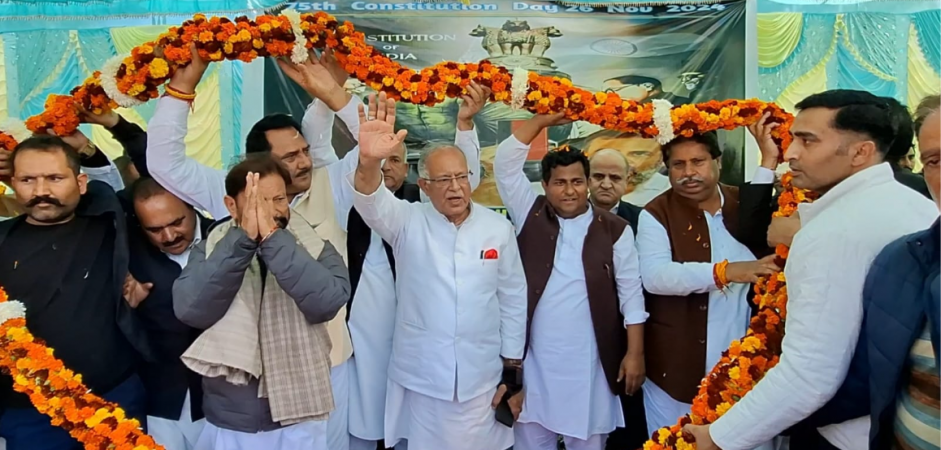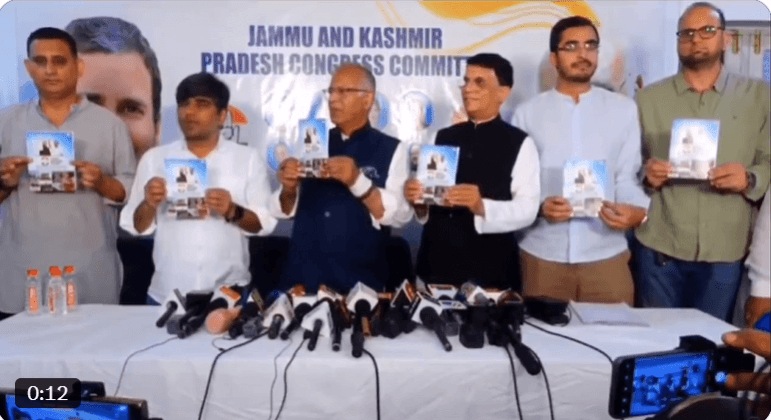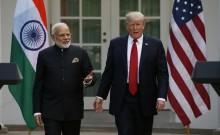
The Fact-Finding Committee constituted by Congress to analyze the party's worst-ever performance in the recently concluded Jammu and Kashmir Assembly elections has failed to submit its report within the stipulated timeframe, raising questions about the panel's intentions and efficiency.
Formed on October 18, the committee was tasked with examining the reasons behind the Congress's dismal performance, which saw the party secure just six assembly seats — its lowest tally in the region's political history.
The panel was given 30 days to present its findings and recommendations. However, with the deadline now long past, no report has been forthcoming, prompting criticism from party members and political observers.
Senior Congress leaders and grassroots workers have expressed concerns over the delay, viewing it as a lack of accountability and seriousness in addressing the crisis.
The party's historic defeat has led to significant introspection, with many attributing the debacle to internal disunity, lack of a cohesive strategy, and failure to connect with voters. The delay in the committee's report is seen as a tactic to avoid internal blame games and public scrutiny.
"This delay reflects poorly on the seriousness of the party leadership in addressing the crisis. The inability to identify the reasons for this debacle shows a lack of accountability," a senior Congress leader from Jammu commented on condition of anonymity.
The party's historic defeat has led to significant introspection within the rank and file. Many Congress loyalists believe that internal disunity, lack of a cohesive strategy, and failure to connect with voters were key factors behind the debacle. However, the delay in the committee's report is being seen as a deliberate tactic to avoid internal blame games and public scrutiny.
The Congress, once a significant force in Jammu and Kashmir, now finds itself struggling to remain relevant in a political landscape dominated by regional parties and the BJP. The recent elections underscored this shift, with many constituencies rejecting the Congress outright.

Party insiders have called for swift action and transparency from the Fact-Finding Committee. "Without accountability, the party risks further alienating its base. This is not just about a report; it's about the future of the Congress in Jammu and Kashmir," a party worker remarked.
As the Congress leadership grapples with its worst-ever performance in the region, the delay in submitting the report adds to the growing perception of inertia within the party. The road to rebuilding trust and reestablishing relevance in Jammu and Kashmir appears increasingly challenging.
Party to devise fresh strategy after Panel's report
The formation of the committee was seen as a significant step by the JKPCC leadership to introspect and address the factors that led to the party's worst-ever performance in the region.
However, the missed deadline has raised concerns about the seriousness and efficiency of the exercise, with many grassroots workers and political observers questioning the party's ability to confront its internal challenges.
During its interactions with party workers at the grassroots level, the Fact-Finding Committee reportedly encountered a consistent narrative: the senior leadership is primarily to blame for the electoral debacle. Many workers accused the leadership of being disconnected from the ground realities, sidelining grassroots voices, and failing to craft a strategy that resonated with voters.
"Senior leaders were too preoccupied with their internal rivalries and personal agendas to focus on the campaign," said a party worker who attended one of the committee's meetings.
"The concerns of the people and the grassroots workers were ignored, and the result was the worst defeat in the party's history", he said.
The workers also criticized the lack of a coherent narrative or strong leadership presence during the campaign, which they said allowed rival parties to dominate the political discourse.













